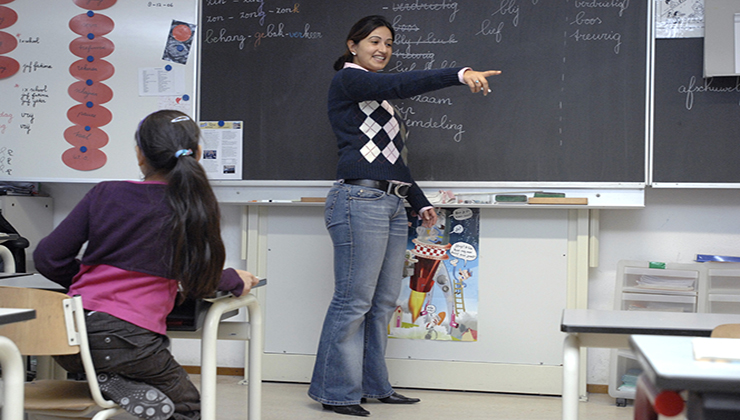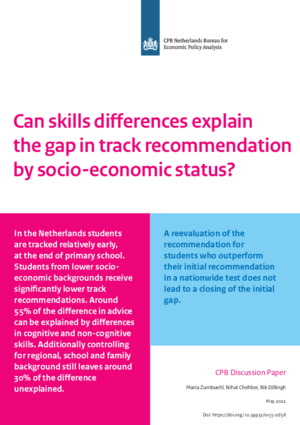Can skill differences explain the gap in the track recommendation by socio-economic status?

We find that with equal skills, students from lower socio-economic backgrounds receive on average lower advice, while students with a migration background receive on average higher advice. A decomposition of the total difference in initial advice between students from high versus low educated parents shows that around 55% of the difference in advice can be explained by differences in cognitive and non-cognitive skills. Adding additional information about the family, school and place of residence, we can explain about 71% of the difference between students with low and high educated parents. We do not find a significant change in the gap in advice between children from different socio-economic backgrounds after the nationwide test and reevaluation procedure.
Downloads
Authors


